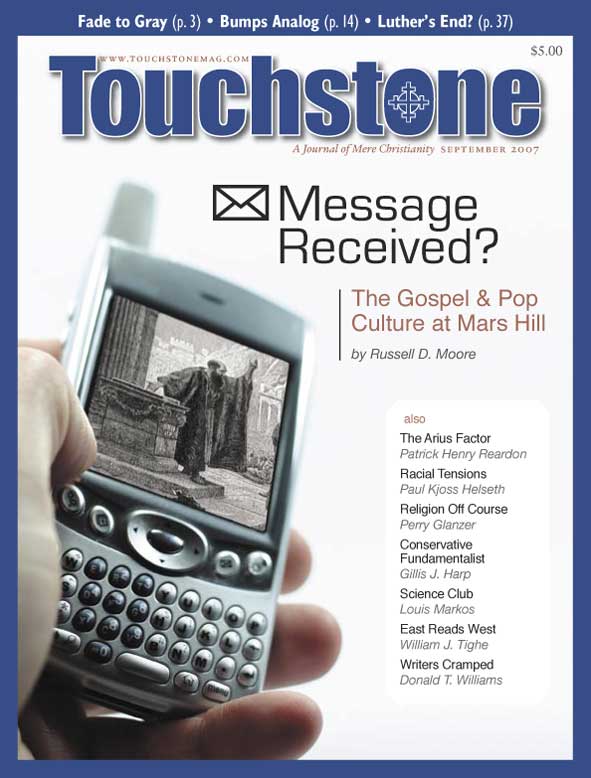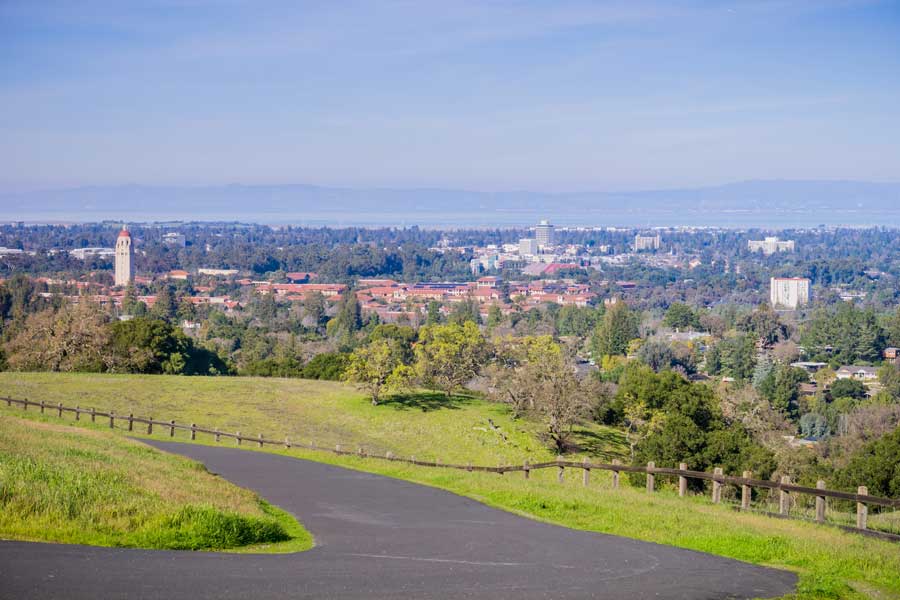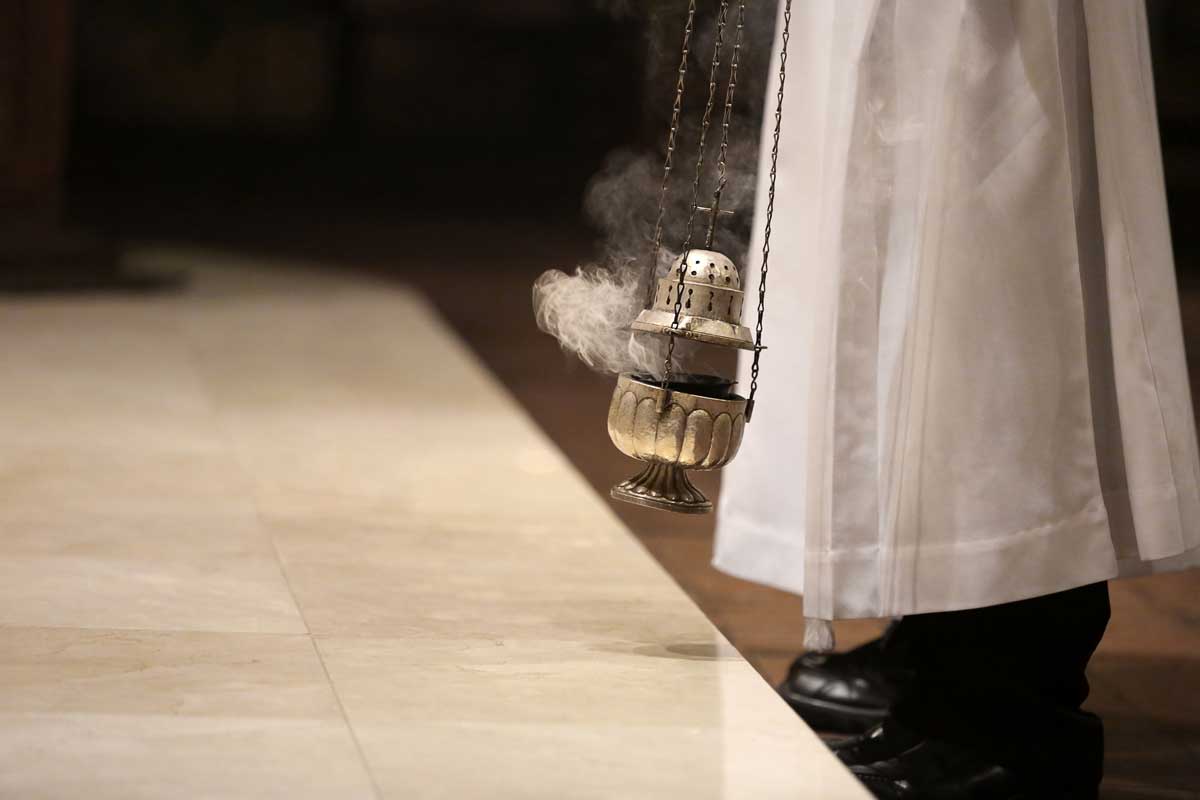Conservative Fundamentals
The Essential Russell Kirk: Selected Essays
edited by George A. Panichas
ISI Books, 2007
(640 pages, $20.00, paperback)
reviewed by Gillis J. Harp
In an insightful essay in the Wilson Quarterly a couple summers ago, historian Michael Kazin remarked that in conservatism today, “an aggressive populism that rails against a liberal elite in the name of the patriotic, God-fearing masses has all but replaced the earlier conservatism characterized by the defense of social hierarchy, respect for state authority, and an aversion to heated rhetoric and the rapid social changes it seeks to inspire.”
Sadly, the public voice of the conservative movement has taken on many of the features of the radical left. It is anti-intellectual, uncivil, and lacks any historical consciousness, even an understanding of its own origins. As Kazin put it: “Edmund Burke and John Adams might be amused by the likes of Ann Coulter and Rush Limbaugh, but those bewigged gentlemen would also recognize that such provocateurs have, in effect, rejected the philosophical tradition they cherished.”
The essays of Russell Kirk are a welcome corrective.
The editor, George A. Panichas, a conservative literary critic and editor of Modern Age (a quarterly founded by Kirk in 1957), helpfully organizes this collection under nine thematic headings (including “The Idea of Conservatism,” “Principles of Order,” “The MoralImagination,” and “The Drug of Ideology”). He also provides thoughtful introductions both for these sections and for each essay, as well as a detailed chronology of Kirk’s life and a bibliography.
Like all Kirk’s writings, these essays are steeped in the Great Conversation of the West, informed by serious historical reflection, charitable in tone (though sometimes pointed in their criticism of reigning liberal orthodoxies), constructive, and often refreshingly hopeful.
Kirk’s Conversation
Kirk maintained that genuine conservatism opposes any sort of ideology. What conservatives have sought to conserve in different places and times has naturally differed, and thus they should demure from any sort of universal program.
Still, conservatism has alwaysreflected at least “six general principles” outlined by Kirk in the volume’s opening essay: belief in “a transcendent moral order”; society viewed as “a community of souls” stretching back into the primordial past; deference to “the wisdom of our ancestors”; a measured prudence in considering any political change; acceptance of class differences coupled with the cherishing of private property; and, finally, recognition of human imperfectability and thus the natural limits of social reform.
The last was, of course, drawn from a Christian understanding of human sin and moral imperfection. Moreover, although Kirk cherished individual liberty, he invariably stressed the need for order as the primary social need.
Gillis J. Harp is Professor of History at Grove City College in Pennsylvania and the author of Brahmin Prophet: Phillips Brooks & the Path of Liberal Protestantism (Rowman & Littlefield, 2003). He and his family worship at Grace Anglican Church in Slippery Rock, Pennsylvania.
subscription options
Order
Print/Online Subscription

Get six issues (one year) of Touchstone PLUS full online access including pdf downloads for only $39.95. That's only $3.34 per month!
Order
Online Only
Subscription

Get a one-year full-access subscription to the Touchstone online archives for only $19.95. That's only $1.66 per month!
bulk subscriptions
Order Touchstone subscriptions in bulk and save $10 per sub! Each subscription includes 6 issues of Touchstone plus full online access to touchstonemag.com—including archives, videos, and pdf downloads of recent issues for only $29.95 each! Great for churches or study groups.
Transactions will be processed on a secure server.
more from the online archives
calling all readers
Please Donate
"There are magazines worth reading but few worth saving . . . Touchstone is just such a magazine."
—Alice von Hildebrand
"Here we do not concede one square millimeter of territory to falsehood, folly, contemporary sentimentality, or fashion. We speak the truth, and let God be our judge. . . . Touchstone is the one committedly Christian conservative journal."
—Anthony Esolen, Touchstone senior editor









